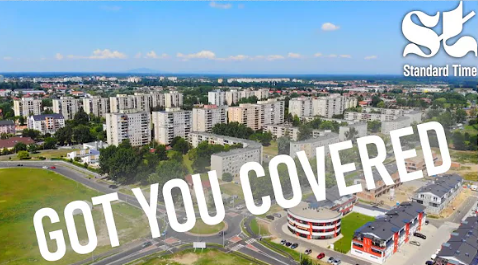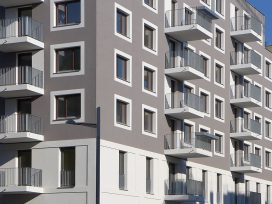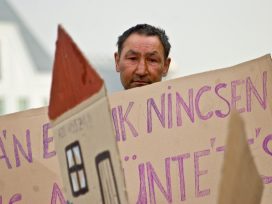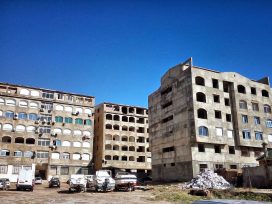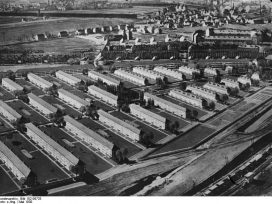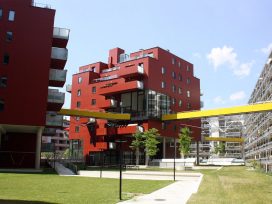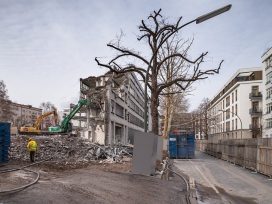Across European cities, real estate markets are filled with speculation, and this is making affordable living harder and harder to come by. Between 2021 and 2022, residential property prices rose by more than 9% compared to the EU average, with some countries seeing particularly sharp increases. In Estonia, Czechia, Hungary and Lithuania, for example, house prices rose by more than 20% during this period.
In 2021, 17% of the EU population lived in overcrowded households, nearly 7% were unable to keep their homes adequately warm, and 8.3% faced visible housing poverty – meaning they spent 40% or more of their income Their families need housing.
Home ownership has proven to be a distant dream for millennials and younger, unless they inherit wealth. This remains the case despite the decline in real housing prices by 5% over the past few years. Market prices are still far from real salaries.
Worse still, rents have become unaffordable. Over the past eight years, Ireland, Hungary and Poland have seen rents rise by 75%. IPrices in Berlin have risen by about 50%, despite some moderate rent control measures. The gentrification of European capitals is actively fueling this trend. Mainly affects neighborhoods and ethnic minorities.
As homelessness increases, a large number of political actors are exploiting this situation to promote fear against those who are forced to sleep on the streets. Public hatred against the poor clearly has roots dating back at least five centuries in European history. Property ownership grows as a political turning point. A notable example of this is English electoral politics, where the most likely determinant of a voter's party preference is whether or not he or she owns a home, or has passive income from property. But anti-poor populism is not limited to the English Channel; The German far right and the Hungarian government are making their own mixtures, and internal hostility is widespread in conservative politics across the continents.
A rosier legacy
European countries have been building social and subsidized housing since the 19th and 20th centuries. When the Industrial Revolution brought large populations to urban centres, this pressure sparked public housing, initially as blocks of flats and boarding houses. Many of the historic city centers we admire today, as well as social housing projects, were built under this pressure. Investment in housing exploded in the wake of the two world wars, when countries had to find quick solutions for large numbers of people displaced by war. However, despite the stability of many of these projects, social housing is no longer as popular as it once was, and many nation-states continue to support middle- and upper-class wealth building rather than finding solutions for the poor. You can read about this, and much more, in Eurozine's focal point: Room temperature.
Elke Roth is editor-in-chief of Urbanist magazine derivativeand co-coordinator of Urbanization! festival For urban exploration. It is part of habiTAT Home Rental Syndicate Follower Bicycle and bars house project in Vienna; A network of self-organized housing projects that aim to purchase homes and secure them as self-managed spaces.
Lenke Pálfi and Adél Csůrök are colleagues Association from Streets to Homes, pioneered the Housing First method in Hungary. They help rough sleepers move into affordable rental housing, as well as advocate for affordable rental housing as a solution to homelessness.
We meet them in Bicycle and rail housing project In Vienna, Austria.
Creative team
Rika Kinga Papp, Editor-in-Chief
Murphy Akiel, Artistic Director
Zylvia Pinter, producer
Zofia Gabriella Babb, executive producer
Margareta Lechner, writer and editor
Salma Shaka, writer and editor
Priyanka Hutchenreiter, Project Assistant
administration
Hermann Riesner General Manager
Judit Ksikos is project manager
Ms. Chela Kardos, Office Administration
Octo crew
Senad Hergić is producer
Video recording by Leah Hochdlinger
Video recording by Marlena Stolzi
Clemens Schmidbauer video recording
Audio recording by Richard Prosek
Budapest video crew
Nora Roszkay, audio engineering
Gergely Aaron Babai, Photography
Laszlo Halasz, photography
Post production
Nora Roszkay, lead video editor
Dialogue Editor Katerina Kuzmenko
art
Animation by Victor Maria Lima
Cornelia Frischoff, theme music
Captions and subtitles
Julia Sobota Closed caption, Polish and French translation; Manage language versions
Farah Ayyash, translator
Mia Belen Soriano, translator
Marta Verdebar translated into Croatian
Lydia Nadori, translated into German
Katalin Szlukovényi is a Hungarian translator
Daniela Unifazo, translated into German
Olena Yermakova is a Ukrainian translator
Aida Yermikbaeva is a Russian translator
The Martian Zaslavsky movie with Italian subtitles
sources
Give me shelter: Cost of living crisis puts pressure on housing in Europe By Giovanni Cui, politician
The risk of a housing bubble is shrinking around the world… except for one European city By James Thomas, Euronews
Berlin, Barcelona and the struggle against gentrification By Terry Garcia, Dive into Smart Cities
Related readings
Room Temperature, Eurozine editorial
disclosure
This talk show is produced by Display Europe: a leading media platform based on public values.
This program is jointly funded by the European Union's Creative Europe Program and the European Cultural Foundation.
Importantly, the views and opinions expressed here are solely those of the authors and speakers and do not necessarily reflect the views of the European Union or the European Education and Culture Executive Agency (EACEA). Neither the European Union nor EACEA can be held responsible for it.


